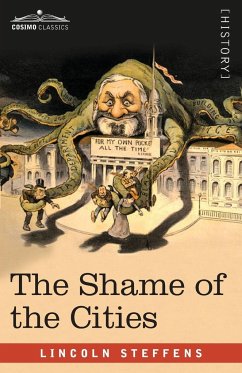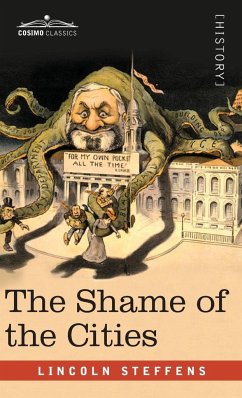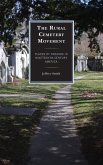"But no one class is at fault, nor any one breed, nor any particular interest or group of interests. The misgovernment of the American people is misgovernment by the American people." -Lincoln Steffens, The Shame of the Cities (1904) The Shame of the Cities (1904), by Lincoln Steffens, is an exposé of political corruption originally published as a series of articles in McClure's Magazine where Steffens was managing editor. His muckraking focused on major cities like New York, Chicago, and Philadelphia in his effort to take down political machines through interviewing hundreds of journalists, district attorneys, and anti-corruption specialists including Theodore Roosevelt before his presidency. Steffens appealed to his audience's sense of morality and emotion to incite political reform. This detailed primary source of the Gilded Age is a great addition to the personal library of anyone interested in political and historical writing.
Hinweis: Dieser Artikel kann nur an eine deutsche Lieferadresse ausgeliefert werden.
Hinweis: Dieser Artikel kann nur an eine deutsche Lieferadresse ausgeliefert werden.








